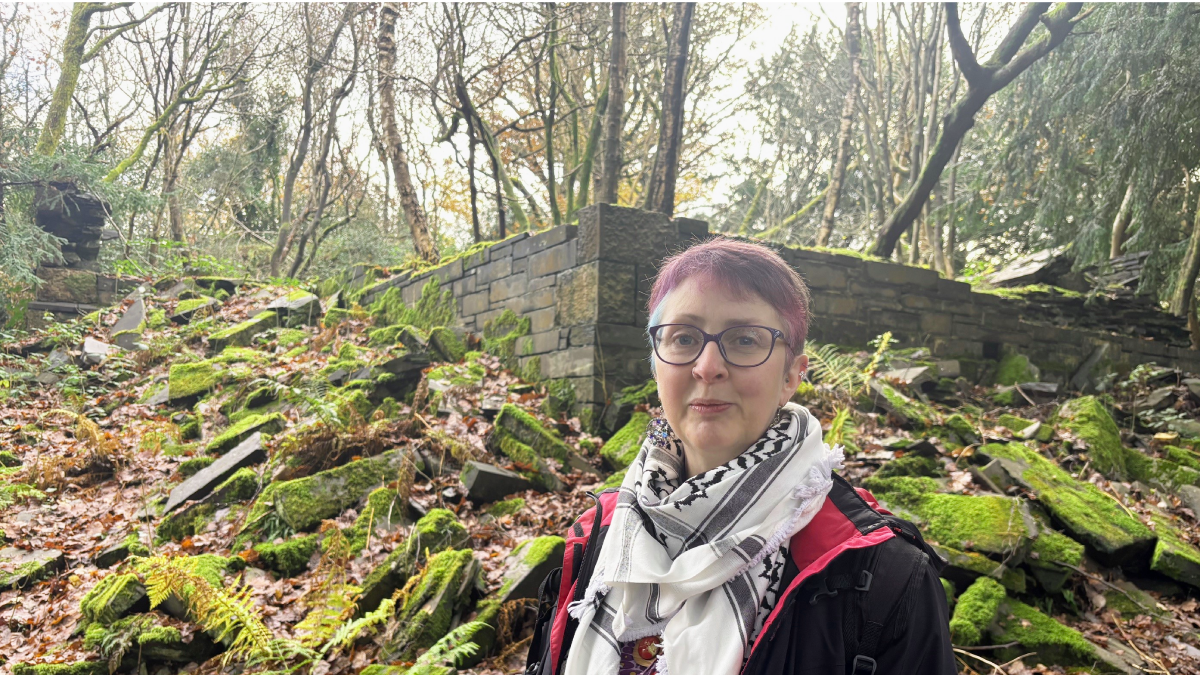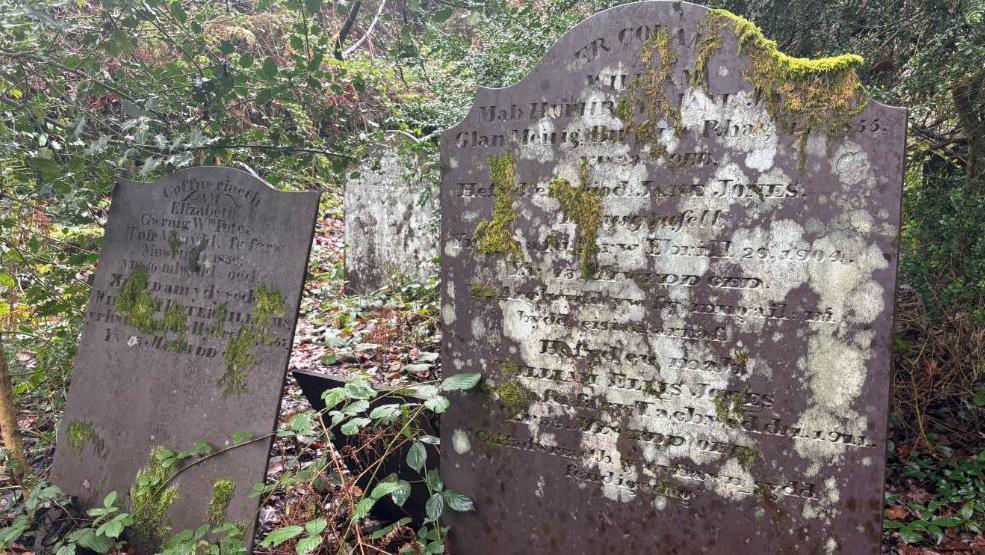Churches struggle with old graves maintenance cost

The Reverend Sara Roberts says the state of some old, closed graveyards is "quite sad"
- Published
Councils should take responsibility for the upkeep and maintenance of old, closed graveyards, the Church in Wales has said.
Because of smaller congregations and fewer donations, the organisation warned that maintaining them was becoming increasingly challenging.
A consultation has been launched by the Law Commission, external, looking into how a shortage of burial space can be tackled, and how old sites can be used in the future.
With councils facing financial hardship and some warning of bankruptcy, the body representing them in Wales said any change in the law that passed responsibility over would have to come with "full and sustainable funding".
Mysterious medieval cemetery unearthed
- Published3 January 2024
Richard Burton's overgrown grave restored
- Published10 July 2022
Behind a wall of trees and bushes in Bethesda, Gwynedd, you will find the Tansygafell Cemetery, which is almost loss completely to nature.
Moss, trees, bushes and soil have now covered many of the graves with some headstones now unable to be read.
The Reverend Sara Roberts, the Bro Ogwen chaplain, said places like these needed to be protected.
"When a church closes and a cemetery is full, it's not possible to get more money by doing more burials," she said.
"The costs remain the same but the money coming in has gone."
She described conditions at the site as "quite sad".
"If someone was trying to find their family's grave, they would have a hard time reading this," she added.
"You'd have to scrape off the moss to see the details."

What should happen to old graveyards in Wales, some of which are well over a century old?
Parts of the current laws on burial and cremation in Wales and England are more than 170 years old, and the Law Commission is looking to bring them up to date.
Proposals include reusing old graves, and reopening closed burial grounds to manage a shortage of burial space.
With many old cemeteries falling into despair, the Church in Wales warned that fewer donations had reduced its scope to care for them.
It has been a heavy and unfair burden for churches for many years, said director of property strategy Alex Glanville.
Describing how the situation is different to England, he added: "It's the only denomination in Wales (Church in Wales) that has an obligation to bury all parishioners, without discrimination - a similar duty to the Church of England.
"However, we do not have the equivalent power to transfer maintenance of closed burial groups to local authorities."
What happens when cemeteries close?
Wales' 22 councils currently have responsibility for all cemeteries presently in use.
As an example, Flintshire council is responsible for the upkeep of more than 20,000 gravestones and memorials of varying shapes and sizes, all of which are examined once every three years.
Fixing hundreds in need of remedial work currently costs the local authority thousands of pounds.
It is a time of financial hardship for local authorities, with many struggling to maintain essential services.
Flintshire council leader Dave Hughes warned his authority faced a threat of bankruptcy and a lot of Welsh councils are in the same position.
The Welsh Local Government Association (WLGA) - which represents Wales' 22 councils - said it "recognised the importance of maintaining community cemeteries".
However, it added: "Councils are already under significant financial pressure.
"Any proposals to transfer additional responsibilities, such as the maintenance of closed cemeteries, must be accompanied by full and sustainable funding to ensure that it can councils to carry out these duties without affecting other essential services."
Prof Nick Hopkins of the Law Commission said: "Our proposals provide a significant opportunity to reform burial and cremation law and secure burial space for future generations."
It is an issue which is not devolved, and it is being looked at for sites across Wales and England.
Ministry of Justice Parliamentary Under-Secretary of State Alex Davies-Jones encouraged people to take part in the consultation.
"We await with interest the Law Commission's recommendations, in due course, on the most appropriate framework to provide modern, consistent regulation for burial and cremation," said the Pontypridd MP.
The consultation will be live until 9 January 2025, external.